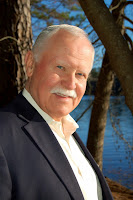By Kasie Whitener
I hate
magical realism. It’s deceptive. It uses modernisms like cars and airports and
government incompetence to make you feel like the story is real.
Then a horse
flies (Winter’s Tale). Or the main character leaps off a cliff and
sprouts wings (Song of Solomon).
Magical
realism gets to a point in the story where the reader believes all of this
could happen and then says, “I’ve got some oceanfront property in Arizona , too.”
Wait, what?
If I’m reading fantasy, I want to know as early as the first page. Do not trick
me.
Trust between
reader and writer is a fiction writing tenet. It’s one of the things the
professors in MFA programs tell you is sacrosanct. To betray a reader’s trust
is to produce terrible fiction.
So what about
historical fantasy? We accept that fantasy fiction will have mythical creatures
like werewolves and witches and that historical fiction will have limited
technology (horse-drawn carriages are ever present).
What are the
conventions of historical fantasy when we know historical fiction should be
accurate but fantasy fiction is more permissive?
In my current
work in progress, my vampires are time travelers. Although the vampire narrator
was born in California
in the 1970’s, he’s been able to travel back in time to 1816 and earn Lord
Byron’s friendship. What kinds of conventions must I observe in the telling of
this cross-genre story?
I don’t want
it to be magical realism. I don’t want to trick my readers into believing this
is a historical fiction novel and then suddenly my narrator bites Mary Shelley.
So I’m honest
about the character’s abilities and his purpose in 1816. But he’s not from that
era; his values and expectations are more modern.
The biggest
challenge has been managing the incongruities between modern vampires and the
historical setting. In some ways, I have adapted my character to 1816. His
narrator voice is a formal, Jane Austen-style voice. But he smokes cigarettes
which did not exist in 1816.
Incongruities
are a valuable story-telling tool. They are used to foreshadow (Why is the
second story window open?) and to sow doubt (That traveling salesman doesn’t
have any samples of his product?). Incongruity isn’t meant to trick or
befuddle, it’s meant to provide that subtle nudge toward the writer’s vision.
While magical
realism responds to a reader’s confusion with, “Because magic,” subtle
incongruity can provide valuable contrasts between characters and create the
very circumstances the protagonist must overcome.
Incongruities
have proved troublesome for some of my beta readers. Time travel is a complex
fantasy genre. It’s a type of uchronia, or a re-imagining of history. It
requires suspension of disbelief. To avoid the arbitrariness of magical
realism, historical fantasy must use its incongruities purposefully.
As I work
through revision, I am mindful of the incongruities that indicate displaced
persons. The hints I’m giving as to the characters’ adjustment in their
environments should not be too distracting. It is not my intention to trick the
reader.



